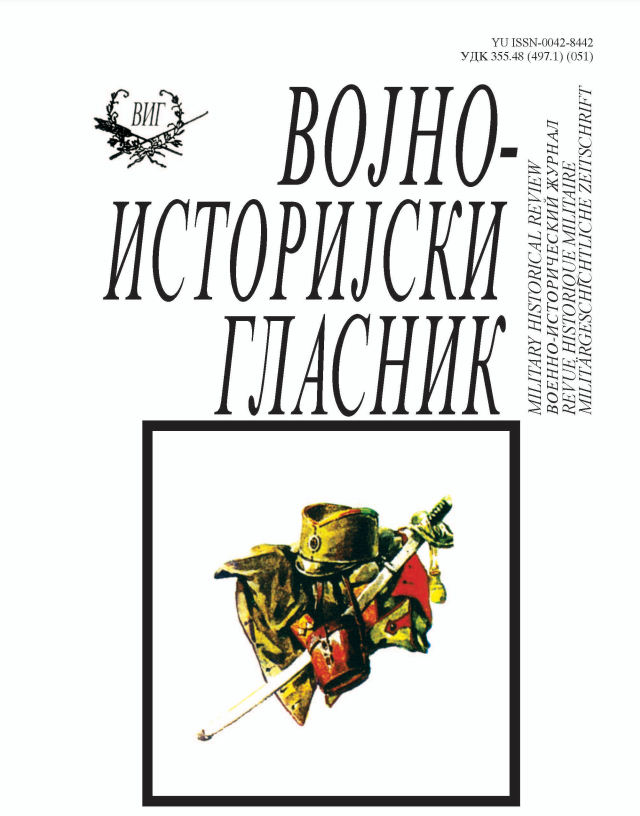РАВНОГОРСКА ОБАВЕШТАЈНА СЛУЖБА У ОКУПИРАНОЈ СРБИЈИ 1941–1944.
THE YUGOSLAV ARMY IN HOMELAND INTELLIGENCE BRANCH IN OCCUPIED SERBIA 1941-1944
Author(s): Bojan B. Dimitrijević, Rade RistanovićSubject(s): History, Military history, Recent History (1900 till today), WW II and following years (1940 - 1949), Fascism, Nazism and WW II
Published by: Institut za strategijska istraživanja
Keywords: Intelligence Service; Serbia; Belgrade, Occupation; Yugoslav army in homeland; General Mihailović
Summary/Abstract: The Yugoslav Army in Homeland (Jugoslovenska vojska u Otadžbini - JVuO), also known as Ravnogorski resistance movement, developed its intelligence branch since the early days of its existence in mid-1941. The premature uprising of 1941 and harsh German reprisals caused that the whole resistance in Serbia collapse until the late summer of 1942. In following period, the JVuO intelligence was established under the subordination of the its Komanda Srbije – The Serbian HQs and its Main Intelligence Centre. But the JVuO intelligence branch was not unified. It was not operated from a single center in later years. Soon, there were other commands which developed their own intelligence networks, such as Belgrade HQ, different operational units and HQs. Even, there were individual networks established mostly in Belgrade, directly connected with its supreme commander General Dragoljub Mihailović. Such kind of organization produced the overlapping or duplication of efforts. No matter such shortcomings, Belgrade was certainly the place where this branch operated most successfully in nearly while duration of the War. The intelligence branch itself was created under the difficult daily conditions of the German occupation which reached its peak in turn of 1942/1943. Its development was never straightforward and depended on the level of pressure from the German occupier, the particular situation in the different parts of Serbia and on the quality, ability and self-sacrifice of the people that were members or supporters. Most of the information were transmitted to higher instances or the Supreme Command over the radio network. It enabled the German signal intelligence to monitor and analyze the level of gathered facts and figures. Nevertheless, the gathered information on the order of battle, strength, activities and movements of the German troops reached the Yugoslav Government in exile and Allied HQs. With numerous of intelligence officers and residents falling into the hands of the German occupier, that is certainly the largest contribution of the JVuO intelligence to the Allied cause. After the Partisan and Soviet troops entered the Serbia in September - October 1944, General Mihailović and main body of its forces, abandoned Serbia and retreated into Bosnia, where they were defeated and destroyed in May 1945. Withdrawal from Serbia in autumn 1944, marked a cease of the organized Ravnogorski intelligence. Having some pre-Second World War intelligence experience, being military attaché and working partly in Intelligence Department, General Mihailović never devoted this business to any of his subordinated officers in JVuO Supreme Command. He gathered almost all of the information from the terrain, no matter that Intelligence Department was created in September 1943 and existed until the end of the war. The article is written upon the preserved documents of the JVuO Supreme Command and its numerous dispatches that were communicated between General Mihailović and its subordinated intelligence network.
Journal: Vojnoistorijski glasnik
- Issue Year: 2020
- Issue No: 1
- Page Range: 136-163
- Page Count: 28
- Language: Serbian

